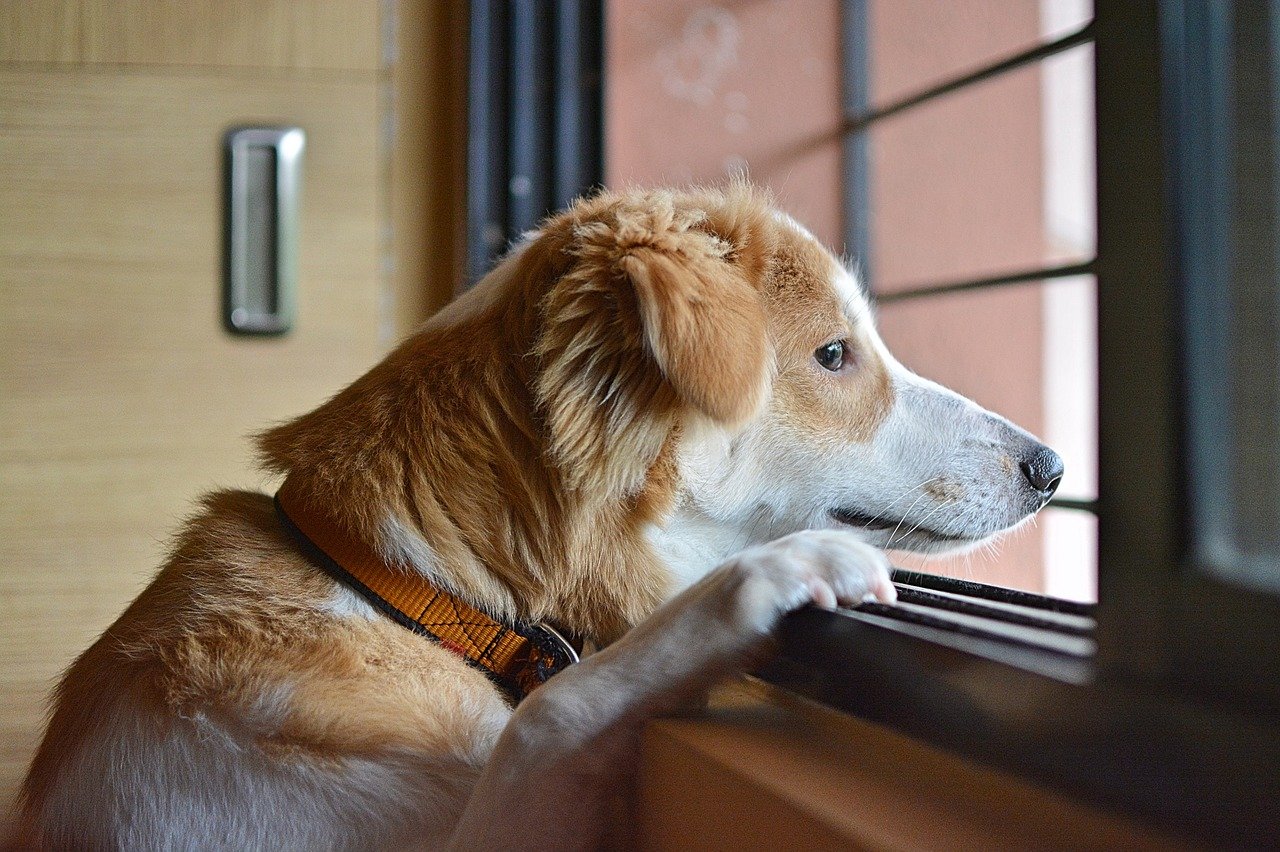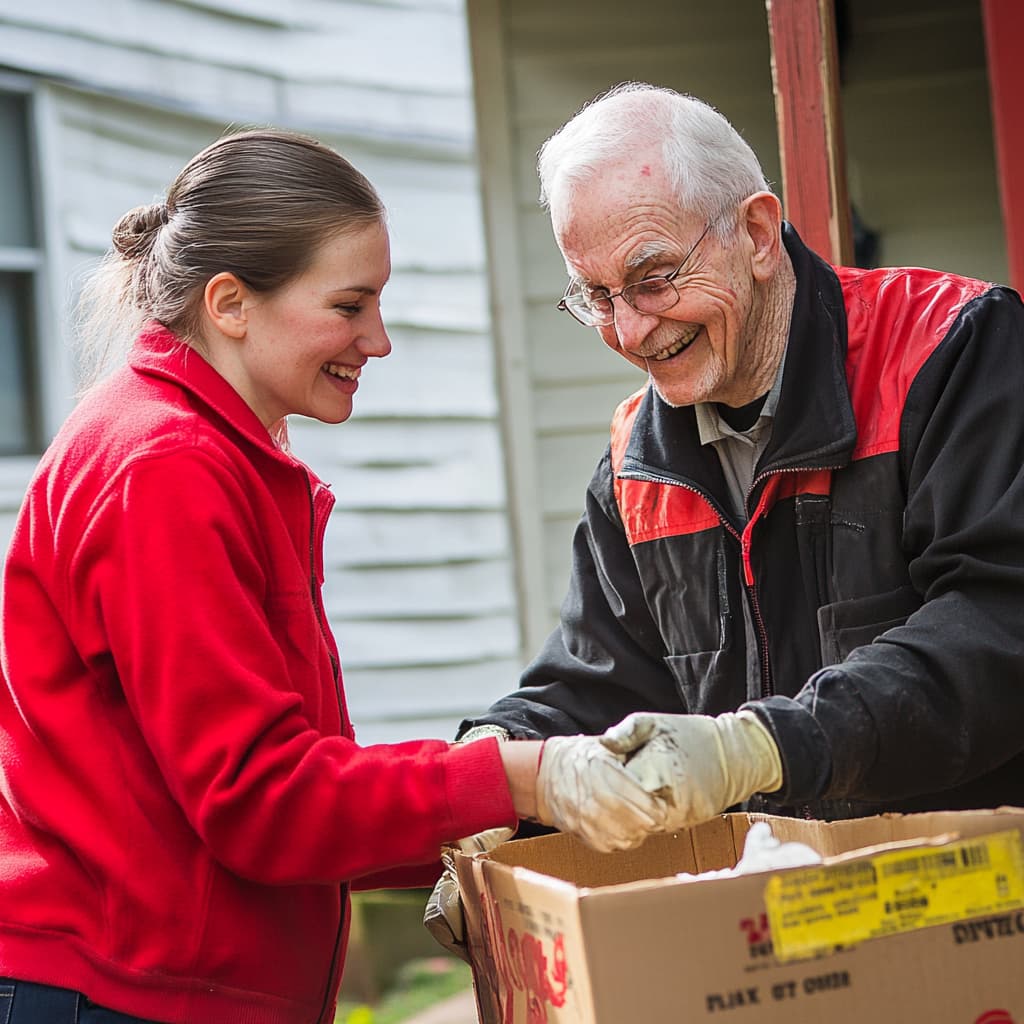Dogs are one of those animals that get very emotional, especially when it involves their hoomans. You may notice your best buddy acting strangely sad and distant as compared to his usual attitude. Some experts say that dogs also suffer from depression, and it’s no different from how humans suffer from this mental illness. Being a volunteer is hard because you’ll be away from your dog pretty often. Some people take them for outdoor volunteering adventures but you need to constantly track the real-time location of your dog.
In reality, it is difficult to know if your dog is suffering from depression or what they feel because you can’t just ask them. But veterinary experts conclude that it is the only explanation for dogs behaving like depressed individuals in many different cases. It is not rare for dogs to feel down and blue, but the good news is that it is extremely rare for them to feel depressed for an extended time.

Signs of Dog Depression
Since dogs behave uniquely, owners will know when they are not their usual selves. If your dog is depressed, you may find him withdrawn from you and everyone in the house. They become passive or inactive in their regular activities, their sleeping and eating routine changes suddenly. And they stop engaging with things that they used to love doing.
Causes of Dog Depression
There are several reasons for your dog to feel depressed. Let’s talk about the potential causes of depression in dogs so you can do your best to avoid it from happening.
Physical Pain. Like humans, dogs also act sad or depressed when they experience physical pain or suffer from physical illness. If you notice your dog acting depressed, it is best to contact the veterinarian immediately so he can rule out any potential physical pain for their behavior. Your vet will help spot any physical problem and treat it before it gets worse. You will need to monitor if his behavior will improve alongside his physical health. If not, you’ll need to discuss further diagnostics with the vet.
Environmental Changes. Some dogs don’t do well with sudden changes in their environment. You’ll find them feeling sad or fearful if you just moved to a new place or sudden change in weather. There is no accurate explanation for their sudden behavioral change. You will need to talk to your vet about possible emotional support activities with your dog to uplift their mood.
Grief and mourning. Dogs do not process grief well like humans. They feel the sadness that comes with losing a companion – a human buddy or another dog they love having around. You’ll notice them feeling blue if their regular companion goes away for an unusual period, moved far away, or if they died. It’s hard to explain it to your dog, and all you can do is be there for them.
Fear or Phobias. All dogs have different fear or phobia. As they face their fears, they might try not to look scared or affected, but you’ll find them retreating from their normal activities and hang out in a space they find comfortable.
Natural Empaths for their Owners. Dogs know when you are depressed. They feel what you feel and see when you are down. You will find your dog mimicking your behavior and emotions as they try to understand and show empathy to their owners.
Separation Anxiety. You probably notice that it is common for dogs to experience depression when you leave them or you go away. They show sadness whenever left alone and wait for you to come back home to cheer them up.
What to do when your dog is depressed
When you notice your dog behaving unusually, please bring them to the vet immediately. Your vet will make the necessary diagnosis if the problem is their physical health or if they are dealing with something emotionally. If the problem is their emotions, the best way to turn things around is to make things fun for them again. You’ll need to exert effort in catching their attention and make them feel wonderful again.
You can try engaging in fun activities that your dog loves doing with you. Play interactive games, tricks, or bond with your dog and make them feel that you’re there. You can also let your dog play with other dogs so they can take their mind off the negative feeling, or you may consider getting another dog to keep them company.
You should pay more attention to bring your dog back to its happy selves. But don’t overdo the attention and comfort you’re giving because they might quickly get depressed once you go back to your regular routine.
As dog owners, it is our responsibility to give our dogs a good quality of life. Often, depression in dogs heal on its own, but it is best to mediate and help your dog deal with it faster.


